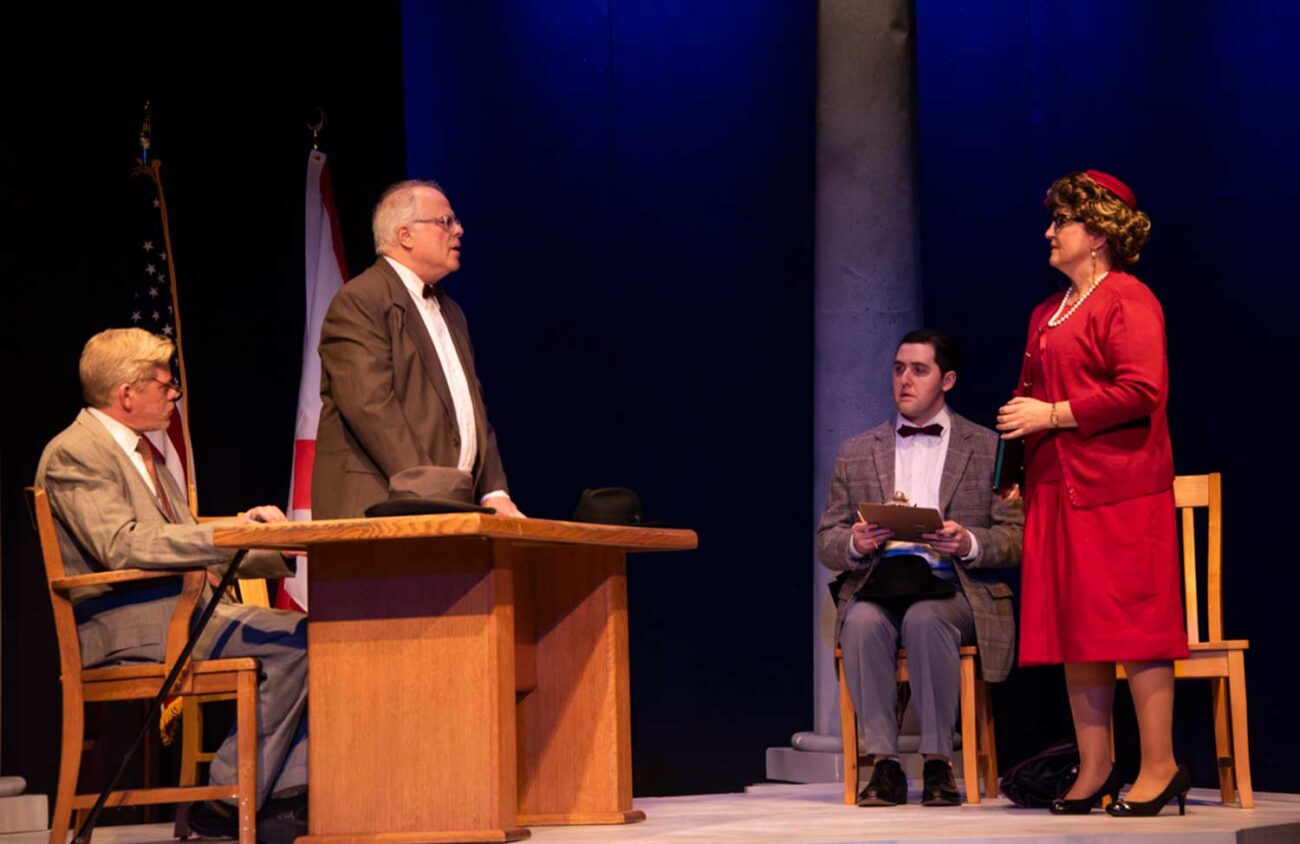During his long career as an illustrator of children’s books, Garth Williams illustrated nearly 100 renowned tomes loved by countless children and adults. Who can forget the soft, charming drawings in Stuart Little, Charlotte’s Web and the Little House on the Prairie series?
Occasionally, he wrote a book of his own, such as The Rabbits’ Wedding. Published in 1959, this seemingly harmless tale aimed at children aged three to seven, caused an unexpected uproar in Alabama. What was the vehement fuss about? Well, a black male rabbit marries a white female bunny.
Some politicians and newspapers called for banning the book from Alabama’s libraries, claiming it promoted integration. The redoubtable state librarian, Emily Reed, had approved the book for all of Alabama’s libraries, and it was up to her to defend the freedom to read.
Many years later, after playwright Kenneth Jones read about this true-life struggle, he adapted it into an acclaimed play, Alabama Story, now playing at Very Little Theatre. As directed by Stan Coleman, the play is a balance of ironic humor, tenderness and infuriating prejudice. At the beginning, we meet Garth Williams, played with charming wit by Scott Smith. Throughout the play, his humorous comments add a layer of depth. Smith also plays several small, humble roles, making him a sort of Everyman.
Nancy West portrays Emily Reed as a highly intelligent, capable torchbearer. She battles her nemesis, Senator Higgins (Marty Brown) with dignity. Higgins clings to an outdated belief in segregation, even as schools are beginning to be integrated.
In a secondary story, Sabrina Gross as Lily and Quinn Vasbinder as Joshua meet by accident one day and recall their childhood friendship. Lily comes from a wealthy family and grew up in a mansion. Joshua is African American, the son of the cook at the mansion. As innocent children they could play with each other and even feel young love, but when they meet as adults they are both married and live in separate realms. Joshua has hoisted himself to a management position in Detroit, and Lily seems bored with the restricted life of a Southern lady. Of course, whenever Joshua visits Montgomery, his life is even more restricted than Lily’s.
Daniel Sarfati plays Emily’s assistant, the research librarian Thomas Franklin. Generally shy and cautious, he and Emily are hilarious as he tries to teach her how to pronounce Montgomery correctly. Having grown up in Indiana without a Southern accent, Emily makes only slight progress. Michael Hoekstra plays an elderly politician who is beginning to accept that times are changing, and Bruce Schertell portrays a liberal newspaper editor who pushes Emily to national recognition.
The play is heartfelt and its qualities are valuable. The second act, however, is longer than it needs to be. By then we already know the story, but the author keeps adding more information that doesn’t expand our knowledge. I’m guessing he did so much research that he didn’t want to waste a single fact.
